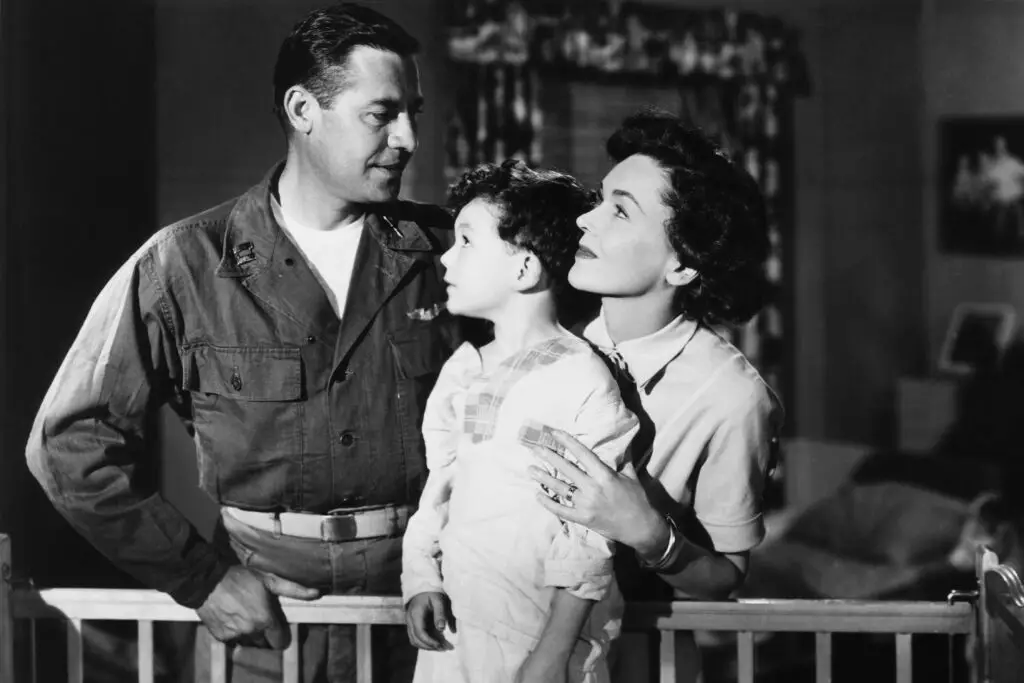1. The “Breadwinner” Tradition

In some families, there was a firm belief that only one person should work outside the home—typically the father. This “breadwinner” custom was deeply ingrained, with society often pressuring families to follow the script of one income earner while the other stayed at home. For many, it was considered a measure of a family’s success or moral standing. The idea that the man should work, and the woman should manage the home was practically unquestioned for generations.
It wasn’t just about providing financially, but also about roles within the family being strictly defined. The pressure to conform to this arrangement sometimes led to unspoken frustrations, as it didn’t always suit everyone’s desires. Despite the changing tides of gender roles over time, some families clung to this custom for much longer than expected, often out of habit, tradition, or fear of judgment from others.
2. The Weekly “Sunday Dinner”

For decades, it was almost a universal custom in many families to gather for a big meal every Sunday. Sunday dinner wasn’t just about the food; it was about family unity and connection. It became a time for everyone, no matter their busy schedules, to sit down together and bond over a home-cooked meal. The menu often didn’t change much, with roast beef or chicken being the main feature, accompanied by mashed potatoes, vegetables, and pie for dessert.
This tradition was seen as essential to family life, sometimes even more important than attending church. As society changed and families became busier with school activities and work schedules, this custom started to fall by the wayside. Still, for many, the idea of a “Sunday dinner” remains a nostalgic, cherished custom that continues to be passed down.
3. The “Not Talking About Money” Rule

In many households, talking about money was seen as taboo. Parents often enforced the belief that discussing finances—whether it was debt, savings, or salary—was inappropriate. Children were expected to remain ignorant of how much their parents made or the struggles they faced, and adults did their best to shield them from financial realities.
This custom, although born out of a desire to protect young minds, left many kids in the dark when it came to personal finance. Growing up without knowledge of budgeting, saving, or managing money sometimes meant that individuals entered adulthood unprepared to navigate their own financial situations. In hindsight, many now see that a bit more transparency would have been a valuable life lesson.
4. The “No Shoes in the House” Tradition

Some families had a strict rule: no shoes inside the house. The idea was simple: keep the home clean by preventing dirt, germs, and other outside elements from entering. While this custom might sound reasonable, it became a non-negotiable rule in many homes, sometimes met with resistance from guests who weren’t used to it.
This tradition varied in importance depending on where people lived. In some cultures, it was strictly adhered to, with families providing indoor slippers for comfort. For others, it was a source of frustration, as the idea of taking shoes off at the door seemed like an unnecessary extra step.
5. The “Don’t Question Your Elders” Rule

Respect for elders was a custom that was deeply ingrained in many families. Children were often taught to never question or challenge their parents or grandparents, no matter what. This belief meant that children were expected to listen without speaking up, even if they disagreed or didn’t fully understand the reasons behind certain rules.
While respect for elders is still an important value, many today are reevaluating this custom, especially in terms of fostering open communication within families. While respecting parents is important, encouraging a healthy, respectful dialogue has become a more balanced approach in modern family dynamics. Still, for years, families operated under the assumption that elders knew best, no matter the situation.
6. The “Boys Will Be Boys” Mentality

In many families, it was a given that boys would be rambunctious, mischievous, and prone to wild behavior. The phrase “boys will be boys” was often used to justify poor behavior or give boys a free pass when it came to things like roughhousing, skipping chores, or avoiding responsibilities. While girls were expected to be more restrained, polite, and focused on schoolwork or chores, boys could get away with a lot more.
This custom was part of a broader societal expectation of gender roles, where boys were allowed more freedom while girls were expected to conform to traditional standards of behavior. It was a custom that didn’t always sit well with those on the receiving end of these double standards, and as gender roles evolved, so too did the questioning of this seemingly harmless saying.
7. The “Always Smile for Pictures” Command

In some families, there was an unspoken rule that everyone had to smile for photographs, no matter how they felt. A picture was meant to capture a happy moment, and anyone caught frowning was seen as ruining the scene. Parents often insisted on perfectly staged family photos, with everyone lined up, smiling brightly, and looking their best.
This custom of “smiling for the camera” might seem innocent enough, but it sometimes created a sense of obligation rather than genuine joy in the photos. People were expected to mask their emotions and put on a happy face, even if they weren’t feeling particularly joyful at the time. As society has become more accepting of real, candid moments, this custom has evolved, with many now embracing natural, unposed pictures that better reflect true feelings.
